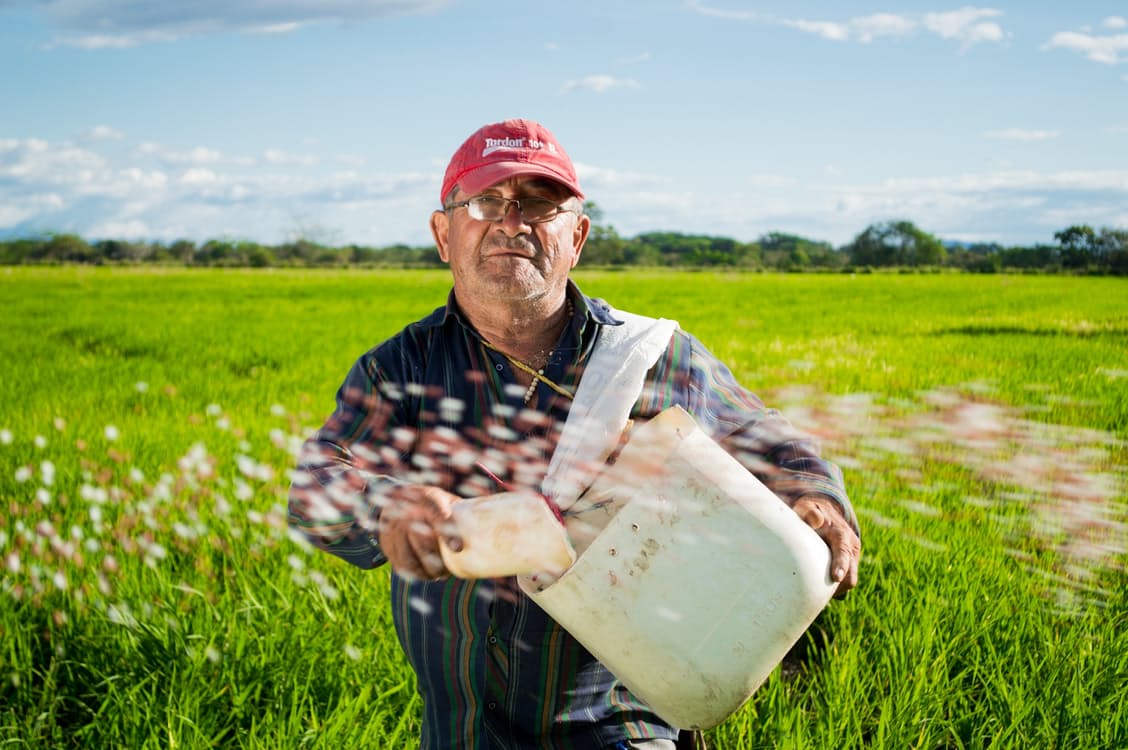Canada’s Immigration and Economic Outlook with Trump as President
How Donald Trump’s Proposed Economic Policies and Populist Rhetoric Could Affect the Economy and Immigration in Canada
Uncertain times lie ahead for both Americans and Canadians now that Donald Trump has been elected President of the United States. Trump has promised drastic changes to both the economic and social systems in the United States.
While some applaud his approach to economics and immigration, many others are terrified of what these changes could bring. Many Canadians are anxiously waiting to see what Trump will do as president, because the changes he brings to economic and social policies will both directly and indirectly affect Canada.
As the neighbours to the north of the U.S., we will wait to see what happens. At this point, we can only hope that our country will stay in good hands and that Canada’s immigration laws won’t be negatively influenced by Trump’s anti-immigration policies.
A recent article from The Argus, a Lakehead University newspaper, discusses what Trump’s presidency could mean for Canada. According to an interview with Dr. Syed Islam, the former chair of Lakehead University’s Political Science Department, Canada’s outlook is undetermined.
Trump’s announcement that he will withdraw from the Trans-Pacific Partnership may not be a bad thing for Canada’s economy. However, Trump’s threat to repeal the North American Free Trade Agreement (NAFTA) is almost guaranteed to harm us from an economic perspective.
Dr. Islam also mentions that Trump’s populist rhetoric is unlikely to have the same effect in Canada as it has in the U.S. since we are a much smaller population with better economic and social systems. Although some Canadians may share the same negative sentiments as those who voted for Trump, our employment rates are higher, so our population does not hold as much resentment towards outsourcing blue collar jobs.
If Trump follows through with his anti-immigrant policies, then we will see an influx of immigration to Canada, since many Americans, especially visible minorities and recent immigrants, may no longer feel welcome in the U.S. Canadians may even have difficulties visiting the U.S. if Trump tightens border policies.
However, as long as we have a socially progressive leader in Canada, we have less to worry about concerning Trump’s immigration policies and its impact in Canada. Our country has distinguished itself, particularly in the past year, in embracing refugees and contributing to overcome the global refugee crisis. We need to maintain that perspective and continue working on ways to strengthen diversity and accept all immigrants into our country, which in turn has a positive impact on Canada’s immigration system and enhances future immigration to Canada.
Canada’s Agriculture Industry Will Welcome Changes to Corporate Immigration Law
Recently Announced Changes to Corporate Immigration Policies Will Make It Easier for Temporary Foreign Workers to Stay in Canada
Canadian farmers feeling the effects of labour shortages will be relieved as recent changes to corporate immigration laws allow temporary foreign workers to stay in Canada for longer. The change means employers can choose to renew the work permits of their employees.
In 2011, the Conservative government created a “four-in, four-out” immigration policy requiring lower-skilled temporary foreign workers to leave Canada after four years unless they were granted permanent residency. This policy has had an overwhelming effect on Canadian industries, most notably the agriculture industry.
Without migrant workers available for farm labour, farmers and the few remaining workers have been struggling. But with these recent changes to immigration policy, more migrant workers will be eligible to stay in Canada for longer. This can also help temporary workers to obtain permanent residency.
A corporate immigration law firm can assist temporary foreign workers in the process to gain work permits and apply for permanent residency. According to a recent article, a newly released Conference Board of Canada study discusses the shortage of temporary foreign workers in the country and its impact on the Canadian agriculture industry. Not only has this shortage been a direct result of the Conservative government’s pushback towards temporary foreign workers in the country, but globalization is also cited as a contributing factor.
Other countries where the cost of labour is lower have been more welcome to migrant farm workers than Canada. Canada’s immigration programs have been targeting international university students and highly skilled workers to stay and work in the country, leaving limited eligibility for lower-skilled workers. There has been a push to limit access to permanent residency for lower-skilled workers in Canada.
Another problem farmers and migrant workers face are the physical demands of farm labour and low wages. Typically, farmers cannot afford to pay higher wages, so migrant farm workers earn lower wages than they would in other industries. Migrant farm workers also work more hours per week than migrant workers in other industries, and the labour is more physically strenuous.
The Conference Board of Canada study recommends more accessible immigration programs for migrant farm workers and lower-skilled workers, making it easier for them to gain permanent residency. The study also discusses the need for a faster application process with a “trusted employer” program, and for immigration programs to allow for multiple entry visas for increased migrant mobility.
Temporary foreign workers wishing to apply for permanent residency should contact a corporate immigration law firm for assistance with the application process.
Changes to the Parent and Grandparent Program Coming in 2017
The Federal Government Plans to Implement a New Processing System Once the Program Opens in January 2017
On December 14, 2016, the federal government announced that it will change the way applications for the parent and grandparent sponsorship stream are processed by eliminating the “first-come, first-serve” basis on which applications have been accepted in the past.
Once the program opens again in January 2017, those wishing to sponsor their parents or grandparents to Canada will now have 30 days to complete an online application expressing their interest in the program. The applications will be available online from January 3, 2017, until February 2, 2017. Following the 30-day period, Immigration, Refugees and Citizenship Canada (‘IRCC’) will invite 10,000 individuals, chosen at random, to submit a complete application within 90 days. Those who are not chosen to apply will be able to indicate their interest for 2018.
These upcoming changes mean that permanent residents or citizens looking to sponsor their parents or grandparents will no longer have to rush to acquire all the necessary documents to get their applications submitted before the application limit is reached. Since the government sets a cap on the number of applications it will accept, individuals applying in previous years have had to incur high courier fees or otherwise risk their application being turned away once the limit was reached. However, even then many were unsuccessful as the cap typically filed up in a matter of weeks and sometimes even days. The new processing system will essentially eliminate these issues, reducing both the application costs and the stress associated with the process.
The proposed system, however, is not without concerns. The announcement’s timing alone will see many individuals, who have already started preparing their applications, incurring significant costs now that the old program has been scrapped. Additionally, critics point out that the new processing will effectively create a lottery system under which some applicants will never win.
Since the IRCC will invite individuals to apply randomly each year, there emerges a risk that some applicants will never be chosen to apply, and will never be able to sponsor their parents or grandparents to Canada as a result. Such potential outcome would be particularly concerning, given that it would run contrary to the immigration objective of seeing families reunited in Canada.
As the opening date for the program is still some weeks away, it will remain to be seen how these concerns with the new processing system will be addressed, or whether there is any need for alarm at all at this time. It is also important to keep in mind that other immigration alternatives exist that would permit individuals to reunite with their families in Canada, all of which Canadian immigration lawyers can assist you and your family with.
American Students in Canada Need More Support
For Studies In Canada, American Students Need More Funding And Reliable Immigration Law Information
Thanks to the lower cost of university education in Canada—at least, when compared to the often unattainable tuition costs in the United States—many American students are coming to study in Canada. The application process for Canadian universities is also much simpler since most Canadian programs do not require entrance exams. That being said, American students in Canada still face financial and immigration hurdles when studying here. A corporate immigration law firm can help American students with immigration concerns, such as obtaining study permits.
With regards to financial aid, both the Canadian and U.S. governments need to develop more joint scholarships and funding programs that are accessible to American students studying in Canada.
A recent Universities Canada report addressed the financial and immigration concerns American students in Canada have. After interviewing focus groups across Canada that comprised American undergraduate and post-graduate students, Universities Canada found that access to funding and frustration with the immigration system were among the top concerns for American students, along with the need for more resources to help with life in Canada. The report also contained recommendations to improve students’ overall experiences in Canada.
Currently, American post-graduate students are not eligible for graduate funding in Canada. Grants and scholarships are also limited for undergraduate students. A recommendation from the report addressed the need for more joint Canada-U.S. funding programs to ease the financial burdens for American students in Canada.
The immigration system has also been a problem for American students, with many receiving inconsistent information regarding immigration policies. The report suggests streamlining the immigration process for American students.
Resources and assistance from Immigration, Refugees and Citizenship Canada representatives at Canadian universities can also ease the frustration and inconsistency surrounding immigration policies for American students.
Other important recommendations from the report address the need for more information and support for students to navigate their new lives in Canada. On-campus support and matching students with mentors can help American students with tasks such as obtaining health insurance and cell phone plans. American students can also raise awareness at U.S. high schools about what to expect when studying in Canada.
As the report suggests, both Canada and the U.S. need to work together to improve American students’ experiences in Canada. In the meantime, a corporate immigration law firm can provide reliable and consistent advice on Canada’s immigration policies for American students.
Support for these important life tasks, such as obtaining a study permit and getting enough funding to pursue or continue studies will improve students’ experiences and make Canada a more welcoming and desirable study destination for international students.
Is Canada's Immigration Department Prepared For Trump Exodus?
Despite Election Outcome, There Are No Plans To Increase Staff To Handle Influx Of Applications
During the U.S. presidential election campaign, many Americans claimed they would move to Canada if Donald Trump was elected president. Now that he has been elected, there are concerns over his immigration plans, specifically with regards to Mexican immigration.
Trump’s immigration platform has taken a clear stance against certain groups and nationalities. Despite this and the rise of certain populist attitudes, Canada's immigration platform continues to embrace multiculturalism and inclusivity. It certainly helps that Prime Minister Justin Trudeau encourages immigration and a diverse population in Canada.
On December 1, 2016, a visa requirement for Mexican immigrants was lifted, which could also lead to an increase in immigration. The visa requirement was imposed by the previous federal government in 2009 to reduce the number of Mexican asylum seekers. Since the imposition of this visa requirement, Mexican asylum rates have fallen from 25 per cent to below one per cent.
Immigration, Refugees and Citizenship Canada have discussed a possible increase in immigration applications from Mexico with the lifting of the visa requirement, but the official line is that “there are no current plans to modify staffing levels.” The existing immigration levels have an estimated number of admitted immigrants per year, but it does not estimate the number of immigrants per country. As such, there is no available estimate for the number of Mexicans who may come to Canada as of yet. Thus far, Canada’s immigration department is not adding staff to handle this possible influx of immigration applications.
Whatever the outcome of this possible surge in immigration to Canada, navigating the immigration process continues to be a frustrating experience. Thankfully, while Canada might be chilly and far for most, Canadian immigration lawyers are passionate and dedicated to helping their clients navigate the entire process, from application to becoming a permanent resident and, eventually, a citizen.





